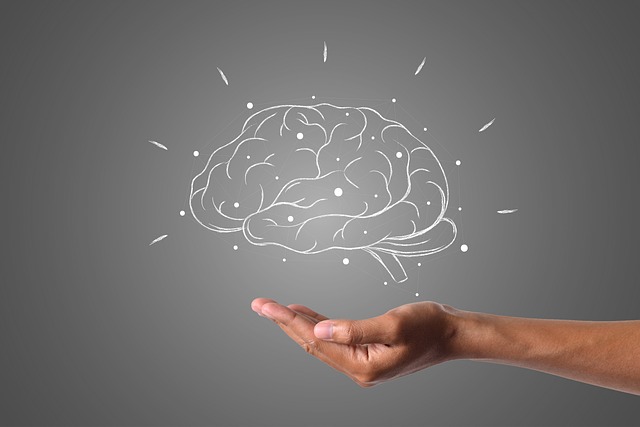This site contains product affiliate links. We may receive a commission if you make a purchase after clicking on one of these links
Researchers are constantly learning more about how what we consume affects our brain health. Recently, the mineral magnesium has started gaining considerable attention due to its positive impact on brain resilience and clarity. Magnesium is categorized as an essential mineral, which means that your body is not able to produce it on its own. Yet it plays an important role in more than 300 different biochemical reactions. Therefore, your magnesium requirements must be obtained through a healthy diet. Considering the growing evidence that shows a direct link between magnesium and brain health, we have compiled a list of ways magnesium may benefit your brain.
The Connection Between Magnesium and Brain Health

The essential mineral magnesium can be found naturally in many whole foods. Sources of magnesium include leafy greens such as kale and spinach, as well as seeds and nuts, legumes, whole grains, some fish, and even dark chocolate. There are also supplements available, such as fizzie tablets that are dissolved in a glass of water. However, these may not be suitable for everyone as they can cause digestive issues and may interact with certain medicines. If you are unsure whether magnesium will interact with any meds you are currently on, speak to your doctor first.
However, if it’s safe for you to use, then you can go ahead and start reaping the brain health benefits of magnesium. These benefits are said to include cognitive function support, reduction of anxiety and stress, improved sleep quality, and protection against neurodegenerative diseases. Furthermore, it is believed to improve mood and overall emotional well-being. Additionally, magnesium deficiency can result in cognitive issues such as memory lapses and brain fog. However, overdoing it can also lead to health issues, so it’s important that you consume just the right amount to reap the benefits. The Recommended Dietary Allowance for adults is around 320 mg daily for women and 420 mg daily for men.
Magnesium and Cognitive Health

Although magnesium’s effects on the body have been studied for many years, it has only recently gained attention for its impact on cognitive health. Studies have revealed that magnesium assists in brain cell communication and helps keep your neurotransmitters balanced. It has also been shown to support various processes such as learning and memory. Experiments involving rats and mazes revealed that the rats’ ability to perform problem-solving tasks involving memory could be improved by increasing their magnesium levels.
When it comes to humans, low magnesium levels have been linked to poor performance in school and depression. It has also been reported that magnesium seems to help the brain recover after head injuries such as concussions. It appears to play an important role in this process by protecting our brain cells and helping them heal properly. It’s important to consume a diet that is rich in magnesium because it works so closely with other minerals and vitamins needed for good brain health.
Helps Reduce Anxiety and Stress

If you are constantly feeling physically and mentally tense, magnesium could be the solution. It is believed that getting the correct dose of magnesium may help decrease levels of the stress hormone cortisol in your body. Several studies have suggested that magnesium supplementation helps ease the symptoms of anxiety. A review of eight of these studies concluded that 50% of patients reported improvement after taking supplements. Magnesium also helps make vitamin D more useful in your body. This is important since vitamin D plays a crucial role in brain and psychiatric health. Magnesium works by regulating hypothalamic-pituitary-adrenal axis activity. This is the system that regulates how your body reacts to stressful situations. It also supports GABA function, a neurotransmitter that calms activity in the nerves.
Read More: How a Diet High in Magnesium Might Impact Dementia Risk
Improves Sleep Quality

It’s really hard to fall asleep and stay asleep if your body and mind aren’t relaxed. Magnesium assists this process by activating the system responsible for relaxing you, known as the parasympathetic nervous system. Magnesium also helps to regulate the hormone that influences wake-sleep cycles, known as melatonin. Mice trials have revealed that a deficiency of magnesium can result in restless sleep and insomnia. It not only helps you fall asleep, but also assists in achieving the deep and restful sleep our bodies and minds need to recover and heal. One study involved giving participants either 500 mg of magnesium or a placebo. The group that was given magnesium reported improved sleep quality overall.
Give your body the support it deserves with CanPrev Magnesium Multi Mineral. This gentle, highly absorbable formula delivers magnesium plus 8 essential chelated minerals for total body wellness. From muscle function to immune health, it’s your all-in-one mineral solution. Easy on the stomach, powerful in results. Shop now and feel the difference!
Protects Against Neurodegenerative Diseases

Several studies have suggested that magnesium could help protect the brain against developing certain neurodegenerative diseases such as Alzheimer’s and Parkinson’s. It is thought that this mineral helps by lowering inflammation and oxidative stress, two major factors when it comes to the development of these diseases. Low levels of magnesium have been linked to faster cognitive decline, which increases your Alzheimer’s disease risk. This is because your brain becomes more susceptible to damage when there is not enough magnesium to maintain connections between your neurons.
It also supports your brain’s ability to adapt and form new connections, known as “synaptic plasticity”. Additionally, magnesium has antioxidant properties that assist in neutralizing free radicals that damage brain tissue over time. Following animal studies, researchers concluded that an increase in magnesium intake helped slow down amyloid plaque buildup, which is associated with the development of Alzheimer’s. Many researchers now feel that neurogenerative diseases can be delayed or reduced by maintaining good levels of magnesium throughout life.
Enhances Overall Sense of Well-Being

Insufficient magnesium intake has been linked with a higher risk of developing depression. Magnesium is also an NDMA receptor blocker, which helps prevent excessive stimulation of glutamate. This is important because this excitotoxic process is often linked to depression. Magnesium also helps in the neurotransmission of dopamine, serotonin, and noradrenaline, which all assist in regulating one’s emotional balance and mood. Trials involving adult participants with mild-to-moderate depression revealed remarkable improvements within just a few weeks of taking around 250 to 500 mg of magnesium daily.
Some studies even reported that the benefits of magnesium supplementation were equivalent to those of standard antidepressants. Additionally, there was a very low incidence of side effects, which can often be an issue when it comes to antidepressant use. Magnesium also reduces pro-inflammatory cytokine levels that typically elevate in depression. So far, there have been some promising results; however, more large-scale studies are needed.
Give your body the support it deserves with CanPrev Magnesium Multi Mineral. This gentle, highly absorbable formula delivers magnesium plus 8 essential chelated minerals for total body wellness. From muscle function to immune health, it’s your all-in-one mineral solution. Easy on the stomach, powerful in results. Shop now and feel the difference!
Read More: 7 Types of Magnesium and How They Can Be Used to Improve Your Health
Helps Alleviate Headaches and Migraines

More and more health practitioners are recognizing magnesium as a safe and affordable way to deal with migraines and headaches. Furthermore, it is believed that a magnesium deficiency can potentially trigger various mechanisms associated with migraine attacks. This includes blood vessel constriction and a neurotransmitter imbalance. Clinical trials have shown that people who took a 600 mg magnesium citrate supplement daily experienced fewer migraines.
The migraine attacks were not only less regular but also less severe than before. Furthermore, according to the American Headache Society, people who suffer from migraines have lower cerebrospinal and brain magnesium levels between attacks. Magnesium can also be used along with other migraine drugs, potentially enhancing their effectiveness and resulting in lower doses. Magnesium is also generally well tolerated by both adults and children, although side effects such as mild diarrhea have been noted.
Reduces Brain Fog and Supports Healthy Aging

When your magnesium levels are too low, the electrical activity of your brain can become less efficient. Getting your magnesium levels back to normal could help reduce that mental fogginess and make you feel sharper and more alert. While proper sleep is still the best way to get rid of fogginess, a magnesium supplement can help boost your focus and help clear away the mental cobwebs. Many people would also love to stay mentally sharp in their senior years. The good news is that magnesium may be able to help achieve that goal. Several studies have indicated that magnesium has antioxidant and anti-inflammatory properties that reduce brain shrinkage related to aging. Magnesium protects your neurons and supports healthy blood flow, helping to slow down the wear and tear of time.
The Bottom Line on Magnesium and Brain Health

Magnesium plays an integral part in keeping your brain healthy. It has been proven beneficial for everything from sleeping better to relieving stress, preventing headaches, and protecting your brain from neurodegenerative diseases. It is no wonder that so many people speak highly of the connection between magnesium and brain health. Make sure to include foods rich in magnesium in your diet, such as fortified breakfast cereals, dairy products, legumes, nuts, seeds, and green leafy vegetables. Teenage boys and girls and men over the age of 70 tend to have the lowest intakes of magnesium. However, everyone can typically benefit from taking a magnesium supplement, considering how many roles it plays in both our physical and mental health.
Give your body the support it deserves with CanPrev Magnesium Multi Mineral. This gentle, highly absorbable formula delivers magnesium plus 8 essential chelated minerals for total body wellness. From muscle function to immune health, it’s your all-in-one mineral solution. Easy on the stomach, powerful in results. Shop now and feel the difference!
Read More: Can Magnesium Oil on Feet Boost Sleep Quality and Ease Pain?
Disclaimer: This information is not intended to be a substitute for professional medical advice, diagnosis or treatment and is for information only. Always seek the advice of your physician or another qualified health provider with any questions about your medical condition and/or current medication. Do not disregard professional medical advice or delay seeking advice or treatment because of something you have read here.

